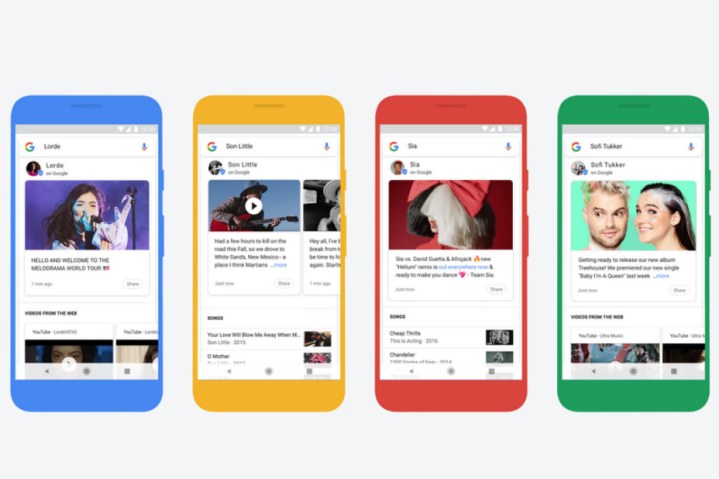If you want to know something about your favorite music artist, chances are you do what most people do and tap your inquiry into Google.
Helping to bring musicians closer to their fans, the web giant is now allowing artists to post their own responses that appear alongside regular search results.
Similar to Twitter, there will be a blue verification checkmark beside the tweet-like posts so you can be confident it’s coming directly from the artist you’re searching for.
Those already signed up include Lorde, Steve Aoki, Sia, Son Little, Sofi Tukker, Shakira, and Kygo, with the web giant inviting musicians around the world to sign up to the free service so they can more easily reach out to their fans via Google Search.
“When you look up one of these musicians, you’ll find updates from them in their Search results,” Google’s Lauren Clark explains in a blog post outlining the feature. “There, you can find images, videos, GIFs, and text posted directly by the artist you’re searching for.”
The posts appear toward the top of the search results and are easy to spot inside the Knowledge Panel — the snippet of information dedicated to a celebrity or business in Google search results. If the artist has posted multiple times, the most recent message appears on the far left of your smartphone display, and scrolling left will bring older messages onto the screen.
A search for Son Little, for example, surfaces responses from the artist via the new feature that include the message: “Hey all, I’ve been enjoying a little break from touring but it’ll soon be time to hit the road once again. Starting …” To read on, you simply tap the card where the message appears and you’ll be taken to the rest of the message, which includes information on tour dates. You can also see when the content was posted, and there are share buttons too, in case you want to spread the word.
“This feature is live for all musicians who show up on Google worldwide, so put on your headphones and search away,” Clark writes. But if the new cards fail to appear then it simply means the artist you’re looking for hasn’t signed up yet, in which case you’ll have to make do with the regular results until they do so.

